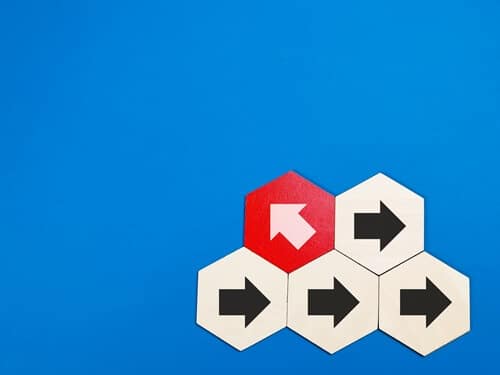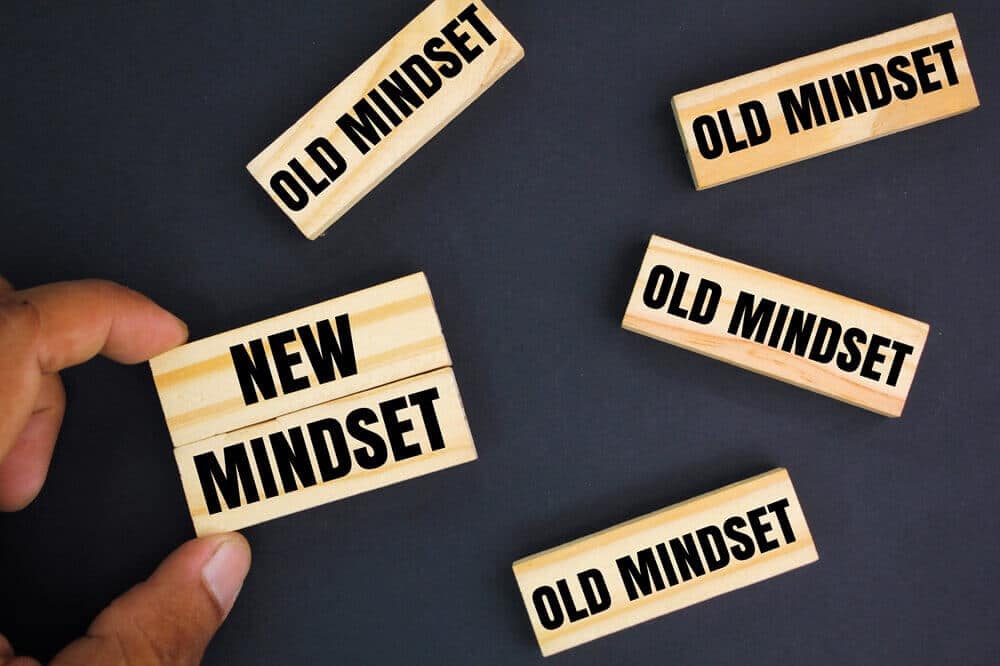Have you ever felt like you just don’t have what it takes to be truly great at something? Or that you simply weren’t born with the natural abilities of those at the top of their game? We have at various points in our life. And this all boils down to a mindset playing a huge role in achievement and outcomes.
Research by psychologist Carol Dweck shows us that your beliefs play a pivotal role in what you want and whether you achieve it. From here, she identified two contrasting mindsets that people tend to possess—the “fixed” mindset and the “growth” mindset.

These mindsets create markedly different attitudes toward learning, risk-taking, overcoming obstacles, and views of one’s abilities. But what is the difference between a fixed mindset and a growth mindset?
Read on as we learn the difference between these two types of mindset.
What is a Fixed Mindset?
People with a fixed mindset believe their skills, talents, and intelligence are fixed or set in stone. Their self-worth is tied to these innate, unchanging abilities, so they feel pressure to constantly prove themselves. This drives predictable attitudes and behaviors.

Believing Abilities are Static
Those with a fixed mindset view their abilities, intelligence, talents, and gifts as predetermined and finite. They believe you either possess certain capabilities or you don’t—and not much can change that fact. Every situation calls for a confirmation of their competence, so they avoid taking risks that could reveal perceived deficiencies.
Avoiding Challenges
Because fixed mindset individuals see abilities as inherently limited, they steer clear of challenges that may expose their flaws or shortcomings. They play it safe and only take on tasks they know they can handle, even if that means missing growth opportunities. Challenges are seen as a threat rather than a chance to learn.

Ignoring Constructive Feedback
Given their firm views on static ability, those with a fixed mindset often dismiss or ignore constructive criticism and feedback. To them, needing correction is an admission that they lack a certain skill. Rather than use feedback to improve, a fixed mindset prompts people to stubbornly reject criticism.
What is a Growth Mindset?
In contrast, individuals with a growth mindset believe talents and abilities can be cultivated through dedication and hard work. A thirst for learning and self-improvement underlies their efforts.
Believing Abilities can be Developed
Unlike a fixed mindset, a growth mindset is founded on the belief that a person’s intelligence and talents are entirely malleable based on their effort and attitude. With motivation and persistence, deficiencies can be remedied and mastery attained incrementally over time. Basic qualities can transform through dedication.

Embracing Challenges
To those with a growth mindset, challenges represent opportunities to expand one’s horizons and abilities rather than threats.
Difficult tasks allow growth mindset individuals to stretch their capabilities through practice while building knowledge. Each setback only fuels their motivation to overcome weaknesses.
Learning from Criticism
Furthermore, individuals who embrace a growth mindset welcome constructive criticism rather than shield themselves from feedback.
Critiques help illuminate areas for honing skills and reinforce the link between dedication and self-improvement. Feedback fuels motivation rather than puncturing fragile self-perceptions.
Key Differences between Fixed Mindset and Growth Mindset
While both mindsets represent distinct perspectives on one’s potential, several patterns highlight the dichotomy between fixed and growth mentalities:

Views on Failure
A fixed mindset equates failure with a lack of innate capability, which jeopardizes self-esteem. A growth mindset views failure as providing the information needed to improve strategically. It’s a springboard, not a condemnation.
Response to Setbacks
Setbacks tend to demoralize those with fixed views, sometimes causing them to give up entirely in the face of adversity. For the growth-minded, obstacles help them identify developmental areas to target with renewed persistence.

Attitudes Toward Effort
Individuals with growth mentalities see sincere effort as the pathway toward mastery while those with fixed perspectives see innate talent as determining outcomes, viewing hard work as barely useful. Strong effort may even indicate deficiencies to some with fixed views.
Developing a Growth Mindset
What is the importance of having a growth mindset, and why develop one, especially when compared to a fixed mindset? Well, cultivating more of a growth mentality produces profound effects over time across multiple facets of life. In truth, One’s mindset is not necessarily permanently fixed.
And looking at this critically, we all want to progress in life. And this can only be possible with a drive for a growth mindset. With concerted effort, adopting more of a growth mentality is within reach.
Changing Your Self-Talk
Start by noticing any negative internal messages suggesting abilities can’t change and replace them with growth-focused mantras, like “I can learn how to do this.”

Taking on Challenges
Seek out opportunities just beyond your comfort zone rather than playing it safe. Let setbacks fuel your persistence toward accomplishing challenging goals. Each one conquered builds your growth mentality.
Seeing Effort as the Path to Mastery
Shift your inner dialogue away from talent-based messaging and toward consistent effort. Recognizing sincere hard work and dedication as the true keys to achievement will erode fixed beliefs over time. Progress flows from perseverance.
Conclusion
In many ways, cultivating more of a growth mindset is about adopting more empowering beliefs about one’s potential. While a fixed mindset places artificial limits based on static views of competence, a growth mentality acknowledges the unlimited capacity for incremental improvement through dedication.
Developing a growth mentality takes some effort initially, but pays exponential dividends moving forward by fueling motivation, resilience, and love of learning.
If you liked this post, leave us a comment on what you think about the differences between fixed and growth mindset!
References
- Yeager, D. S., & Dweck, C. S. (2012). Mindsets that promote resilience: When students believe that personal characteristics can be developed. Educational Psychologist, 47(4), 302-314.
- Sriram, R. (2010). Rethinking intelligence: The role of mindset in promoting success for academically high-risk students. Journal of College Student Retention: Research, Theory & Practice, 12(2), 155-136.







